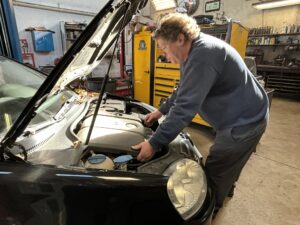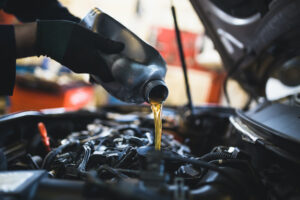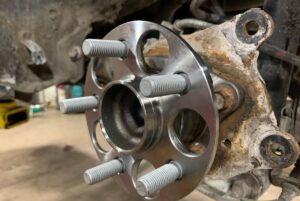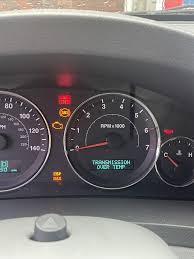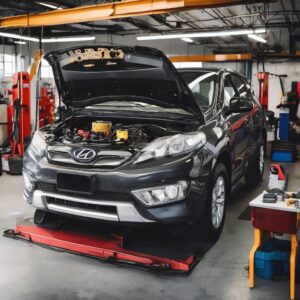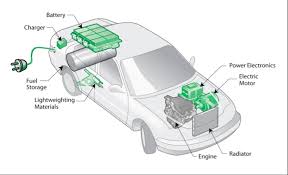Best Ways To Maintain The Value of Your Car
Your car is more than just a means of transportation—it’s also an investment. Whether you plan to keep it for years or eventually sell or trade it in, maintaining your car’s value can pay off significantly. A well-cared-for vehicle can command a higher resale price, attract more buyers, and save you money on costly repairs down the road.
In this blog post, we’ll dive into the best practices for keeping your car looking and running like new, helping you protect its value for years to come.
1. Keep Up with Regular Maintenance
Routine maintenance is crucial for preserving your car’s performance and longevity. Neglecting regular upkeep not only leads to mechanical issues but also significantly lowers your car’s resale value.
Key Maintenance Tips:
- Change the oil and oil filter according to the manufacturer’s recommended schedule.
- Rotate the tires every 5,000–7,500 miles to promote even wear.
- Replace air filters to maintain engine efficiency.
- Check fluids regularly, including coolant, transmission fluid, brake fluid, and power steering fluid.
- Inspect brakes and suspension annually.
Pro Tip: Always keep a record of all maintenance and repairs. A well-documented service history boosts buyer confidence and can increase your car’s resale value.
2. Wash and Wax Regularly
First impressions matter—and the exterior of your car is the first thing buyers will notice. Keeping it clean and protected preserves your car’s paint and prevents corrosion.
Exterior Care Checklist:
- Wash your car every 2–4 weeks, especially after exposure to salt, dirt, and road debris.
- Wax your car every 3–6 months to add a protective layer against UV rays, rain, and pollutants.
- Detail the exterior at least once a year to remove surface contaminants like tar and tree sap.
- Touch up paint chips immediately to prevent rust from forming.
3. Protect the Interior
The inside of your car is just as important as the outside when it comes to preserving value. Stains, tears, and worn-out upholstery can be major turnoffs for potential buyers.
Interior Care Tips:
- Vacuum regularly to remove dirt, dust, and debris.
- Use seat covers and floor mats to protect against spills and wear.
- Clean spills immediately to prevent permanent staining.
- Avoid smoking inside the vehicle, as smoke odors are extremely difficult to remove.
- Condition leather seats every few months to prevent cracking and fading.
4. Park Smart
Where and how you park your car can make a significant difference in its long-term condition.
Parking Tips:
- Park in garages whenever possible to protect your car from the elements.
- Use sunshades to reduce interior fading and dashboard cracking if you park outside.
- Avoid parking under trees where sap, bird droppings, or falling branches could damage the car.
- Park away from other vehicles in parking lots to reduce the risk of dings and dents.
5. Fix Problems Promptly
Addressing small issues immediately prevents them from becoming bigger (and more expensive) problems later.
Examples:
- Fix windshield chips before they spread into cracks.
- Address minor mechanical noises early before they turn into major repairs.
- Replace worn tires, brakes, and belts as needed.
Neglecting small repairs not only leads to costly breakdowns but can also give the impression that the car was poorly maintained.
6. Drive Responsibly
Your driving habits directly affect the mechanical health of your car.
Good Driving Habits:
- Avoid rapid acceleration and hard braking, which put extra strain on your engine, brakes, and transmission.
- Ease over potholes and speed bumps to protect your suspension and tires.
- Let the engine warm up for a few moments on cold mornings.
- Follow recommended towing and load limits to prevent undue stress on your vehicle.
Driving gently and responsibly helps prolong the life of critical systems and protects your car’s value.
7. Keep Mileage Reasonable
Mileage plays a huge role in a car’s resale value. Higher mileage often means lower resale prices, even if the car is well-maintained.
Tips to Control Mileage:
- Carpool or use public transportation when possible.
- Combine errands into one trip to minimize unnecessary miles.
- Use another vehicle for long-distance trips if you own more than one car.
While you can’t completely avoid adding mileage, minimizing unnecessary driving can help preserve your car’s value.
8. Save All Receipts and Maintenance Records
When it’s time to sell or trade in your car, a detailed maintenance history can significantly boost its value. Buyers and dealerships view documented maintenance as proof that the vehicle was well cared for.
Keep Records For:
- Oil changes
- Tire rotations and replacements
- Brake jobs
- Fluid changes
- Major repairs and parts replacements
- Detailing services
Organize receipts in a folder or use a smartphone app to track maintenance digitally.
9. Customize Wisely (Or Not At All)
While it’s tempting to modify your car to reflect your personal style, excessive aftermarket customizations can lower resale value by making the car less appealing to a broad audience.
Customization Tips:
- Avoid permanent alterations that can’t easily be reversed.
- Stick to tasteful upgrades that enhance performance, safety, or aesthetics without alienating potential buyers (like tinting windows or upgrading to quality tires).
- Keep original parts if you do make changes, so they can be reinstalled later.
10. Stay on Top of Recalls
Manufacturers issue recalls to address safety or performance issues. Unaddressed recalls can negatively impact resale value and even cause mechanical problems down the road.
Check Recalls:
Visit the National Highway Traffic Safety Administration (NHTSA) website or your manufacturer’s site to check for open recalls using your Vehicle Identification Number (VIN).
Repairs related to recalls are typically free, so there’s no reason to delay.
Conclusion
Maintaining your car’s value requires more than just regular oil changes—it’s about caring for the entire vehicle, inside and out. By staying on top of maintenance, protecting the exterior and interior, driving responsibly, and keeping thorough records, you can preserve your car’s condition and maximize its resale or trade-in value when the time comes.
Remember: A well-maintained car isn’t just worth more—it’s also more reliable, safer to drive, and a source of pride.
Thinking of selling your car in the future? Start these habits today to keep your vehicle looking—and performing—its best!

